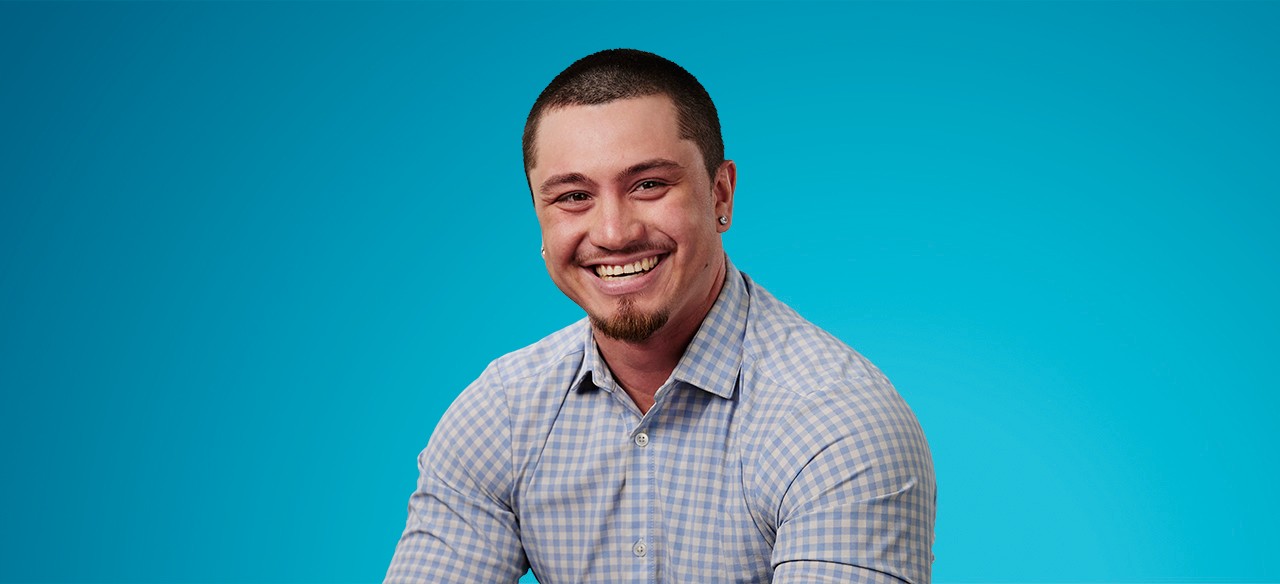
Danny Martinez is a senior sales consultant in U.S. Intermediaries (USI). In this Q&A, learn about his career evolution at T. Rowe Price. He also discusses how the workplace culture continually encourages him to learn and grow.

Danny Martinez had no experience in finance before he embarked on a career at T. Rowe Price, but that didn't stop him from pursuing his goals. "I think one of the major reasons I was interested in the job was because a friend referred me. He spoke very highly of the firm," he recalls. As a sports enthusiast and lifelong baseball player, the collegial company culture appealed to Danny. "It told me a lot about how T. Rowe Price is like a family."
Martinez was originally hired to work in the call center, where he quickly learned the ropes. That was five years and two promotions ago. Now, he's a senior sales consultant in USI. We sat down to speak with him about his experience working at the firm.
Could you retrace for us how you went from your position in the call center to your current job?
I started in retail investment services on the phones, which was basically a service-oriented position. It was a starting point and taught me a lot about how things work on the retail side. From there, I knew where I wanted to go—to sales. The easiest way to get there was through client engagement, so that's where I was looking.
After about a year, I got two offers: one for personal investing and another for retirement-based. Since I already had a year of getting to know the personal side of things, I decided to challenge myself to be well rounded. I took the retirement-side job, which was great. I had an outstanding manager there and got to learn a lot.
You also earned four licenses during this time, correct?
Yes, what you're trying to do in your job is wholly dependent on the licenses you have. To be able to do certain things for clients in retail, like opening new accounts, for example, I needed to have specific licenses. It took about six months to get my Securities Industry Essentials license and my Series 6 and 63 licenses, which allowed me to do these things. Then, with client engagement, I got my Series 7 and 66 licenses, which allow me to sell securities.
Once I was in the role for about a year and doing well, I asked if I could go for the Chartered Retirement Planning Counselor [CRPC] designation. My manager agreed to sponsor me for T. Rowe Price to put me through the course instead of going to a third party. The CRPC differs from other licensing, where you get time off to study. Instead, you have X amount of time to take the test, and it's entirely up to you to be prepared.
Recently, you got a second promotion. Tell me about that.
My manager selected me for the Talent Share program, where you split time between your regular job and training and mentoring in a new position. I got to learn the ropes of the job for three months, which was super helpful. The ultimate goal is for individuals in the Talent Share program to be promoted, and I got the job in February 2022.
Now, I'm a senior sales consultant in USI working in partnership with Retirement Plan Services [RPS]. We sell our recordkeeping services to outside companies. We work primarily with advisors and third-party administrators [TPAs] to provide the best retirement options and services to plan sponsors while also helping our advisor and TPA partners grow their retirement plan business.
How did the culture at T. Rowe Price encourage you to continue learning and growing?
Coming in as a new hire who knows nothing, who will be trained and then thrown to the wolves, is nerve-wracking. But you enter this warm embrace of people wanting you to succeed. Everybody's super nice and willing to help you. But they're also there to train and teach you. I've seen that time and time again, which was one of the reasons I came in the door initially. It got me in the door and kept me in the building.
What have you learned about yourself through this experience?
I'm capable of more than I thought. I've always been a good student, but that doesn't necessarily equate to the real world. Smart test-takers aren't always the smartest people, and vice versa. I've learned a lot about myself as far as being able to do things that I may not have thought I would be able to do or be successful with.
What advice would you give young professionals looking to grow their careers?
My advice is to try and sit yourself down and get an idea of where you want to be. It doesn't even have to be super specific. Then figure out how to get there. It would help if you thought a few moves ahead, so you won't be so quick to give it up. For example, when I was in the call center, I was offered a job with a raise, but it wouldn't have gotten me closer to where I wanted to be, so I turned it down. Then, when the right job came along, I was ready to take it. Just have an idea of how each move will help your career. Is a job a steppingstone in the wrong direction? Don't let money be your driving force. The money will come, and you will want to be happy doing what you do.
You may also like
202308-3043024

